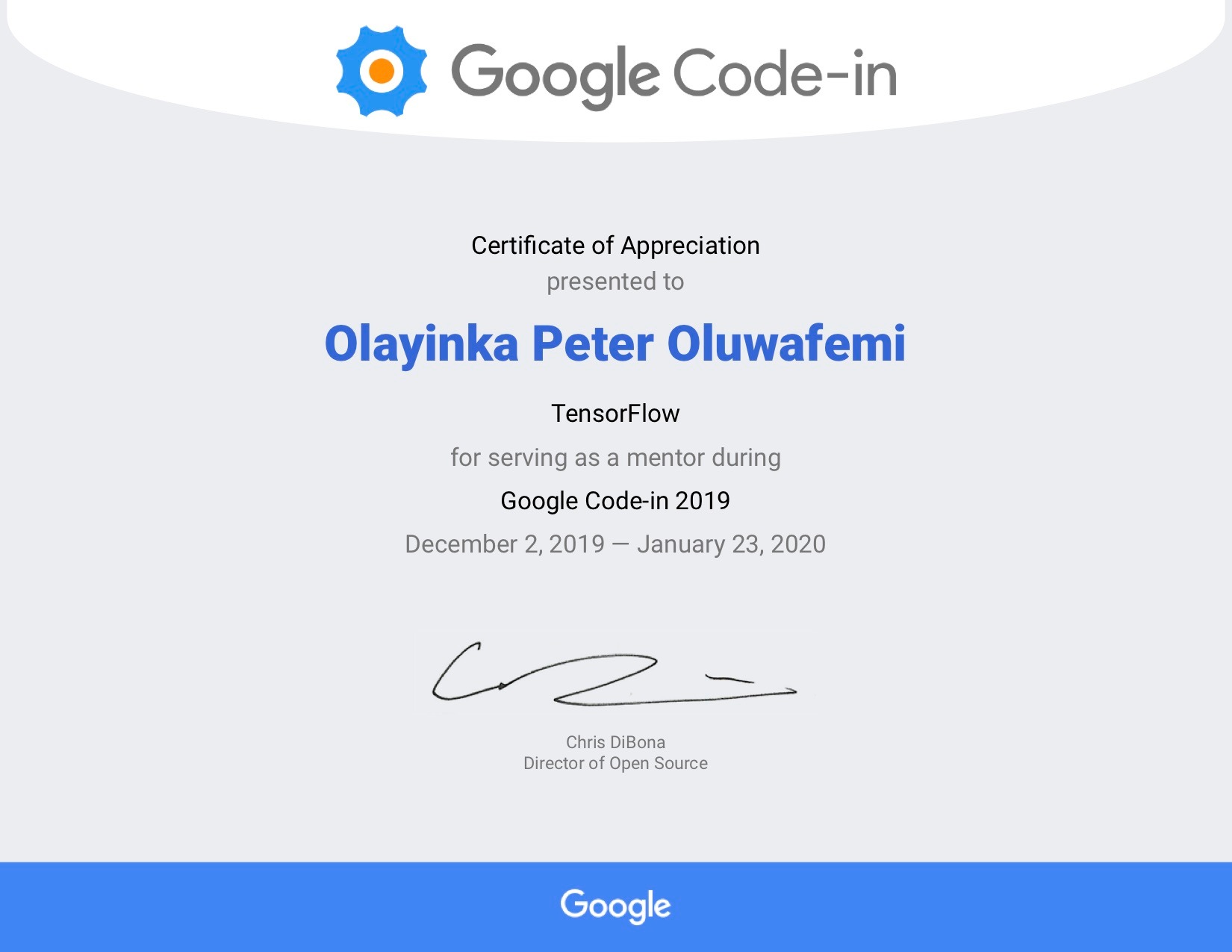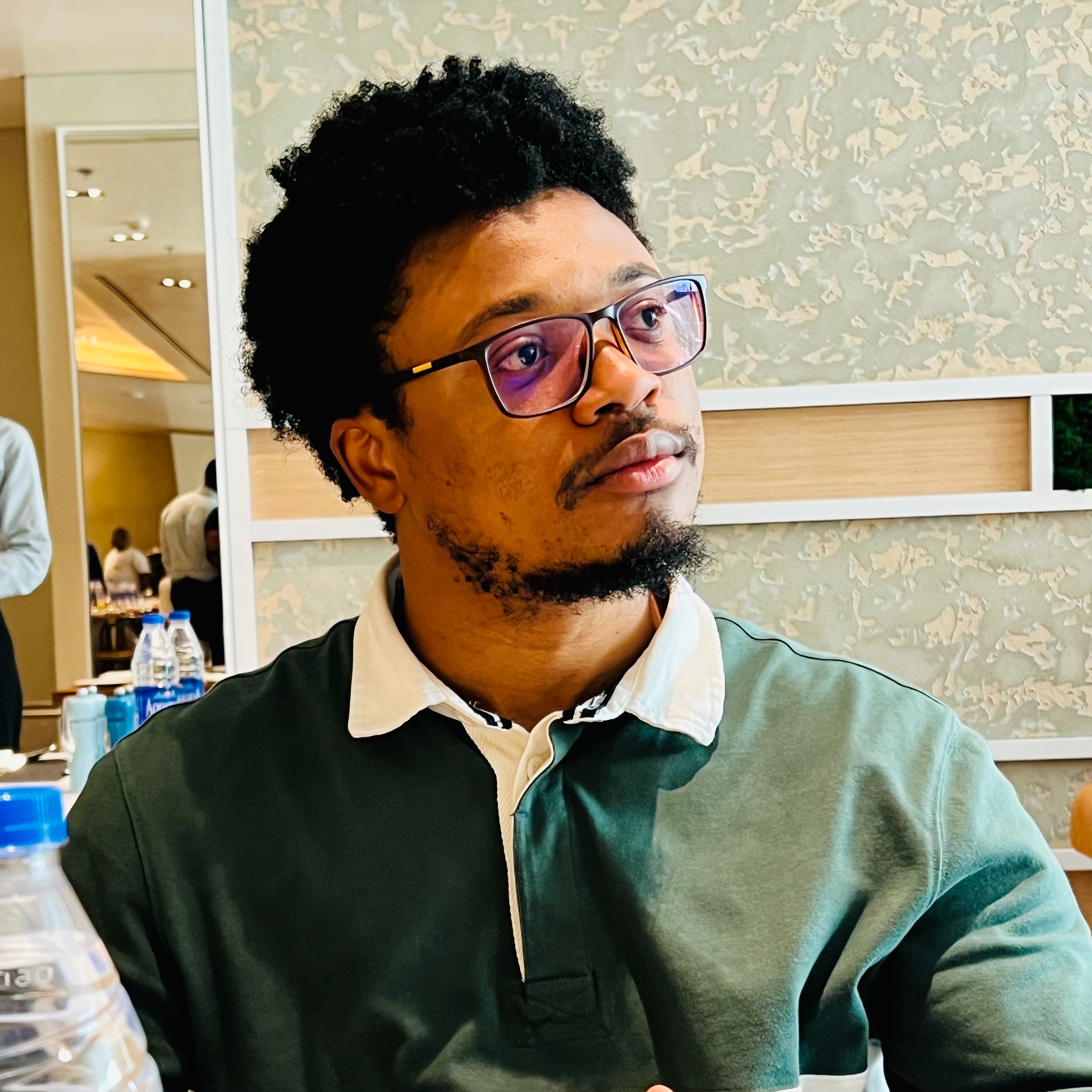For me, it usually is a drag writing about experiences, but being a GCI Mentor for TensorFlow is an experience I want to pin for keep and make timely reference to.

Following Paige’s tweet in September 2019 about TensorFlow being a part of Google Code-In in 2019 and calling for mentors' applications, I’d applied and got accepted.
So, Google Code-In is a contest to introduce pre-university students (ages 13 - 17) to open source software development. And since 2010, over 8100 students from 107 countries have completed work in the contest.
Open source organizations provide a list of tasks for students to work on during the seven-week contest period and each task has mentors from the organization assigned should students have questions or need help along the way.
The mentorship period happened between December 2nd and January 24th, and the experience was really exciting.
I had the opportunity to mentor participants under three tasks, namely:
- Complete the Udacity TensorFlow course track
- Image Captioning
- Add a usage example to TensorFlow 2.0
And here’s what I learnt during the period:
- Everyone is excited about Machine Learning and TensorFlow — teenagers even more.
From just the three tasks above, we had lots of contestants and the participation from the students felt endless. These included them creating task instances, asking questions and so on, and each of these came with an email notification.
- The question of “How To Help” is important
I remember how each email notification signifying participation on another task instance would spur me into heading in to see what student it was, what task to evaluate and check whether to approve or request for extra work, if any other mentor(s) were already attending to the student, what mentor that was, and how to help. “How to help” was the greatest of them all. I soon began to realise how the same question matters even in our normal day to day work life and never-ending activities.
- Community of Mentors — a new form of teamwork
Apart from the interaction with the students, there was something more interesting. It was the way every other mentor would constantly build constructive steps of progressive interaction among each other whilst only consciously referring to the student. It just felt like a really smooth non-verbal teamwork effort. It is the part I am really proud of.
I look forward to more mentorship opportunities.
See codein.withgoogle.com/about/ for more about Google Code-In.
